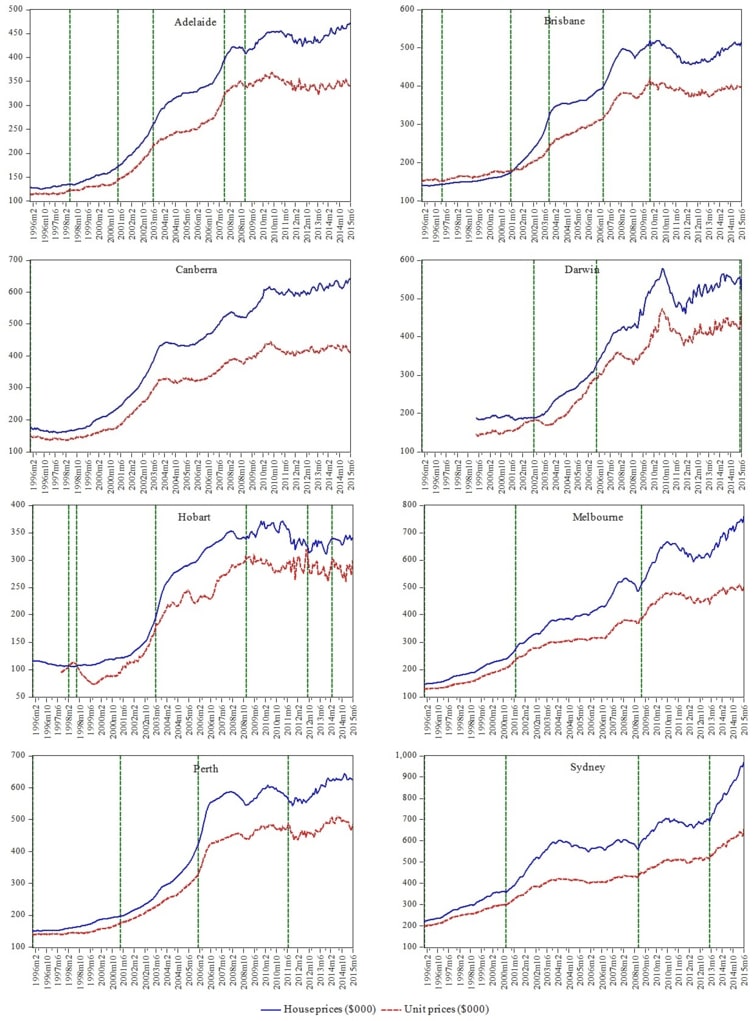The herd driven housing bubble that could trigger an apartment bust
![]()
GUEST OBSERVER
The price gap between houses and apartments in many Australian cities is closing as property investors exhibit a significant degree of herding behaviour, according to new research.
The research comes amid speculation that Australia is in a housing bubble. Herding behaviour is leading to excessive borrowing, further fuelling apartment prices, particularly in Sydney.
A major cause of the sub-prime crisis in the US was a herd mentality, in which home buyers were influenced by purchasing behaviour of others. More recently a widely publicised 2015 report by global fund manager PIMCO suggested that low interest rates and rising house prices in Australia were driving similar behaviour.
We examined whether there was formal evidence of a herd mentality in Australian metropolitan property markets. To do so, we looked at the dynamic interaction between house prices and apartment prices in Australian capital cities using monthly CoreLogic RP Data from December 1995 to June 2015.
Click to enlarge

Figure 1. Monthly house and Apartment prices (December 1995- June 2015) Note: Green dotted lines show the narrowing of the pairs over time. CoreLogic RP Data
Figure 1 shows house and apartment prices exhibit a strong degree of co-movement and both prices tend to deviate from each other quite often. Nevertheless, every now and then the price gap has narrowed.
Except for Canberra, in all cities the narrowing takes place after a long period of widening. There are at least two reasons why there is a long-run relationship between house and apartment prices. First, houses and apartments are considered as substitutable investments. Second, negative gearing and capital gains provisions encourage people to borrow against the equity in their home to purchase an investment property, which is typically an apartment. When the price of the family home increases, this boosts demand for apartments, pushing up their price as well.
We found that in some cities such as Sydney, investors can equally profit by purchasing apartments because rising house prices eventually push up apartment prices and vice versa.
We found house prices significantly affect apartment prices across all cities. But in only four cities (Adelaide, Melbourne, Perth and Sydney) apartment and house prices influenced each other equally. However, when apartment prices are on the rise (i.e. the market is bullish), the positive impact of house prices on apartment prices is substantially larger. This implies that investors exhibit a significant degree of herding behaviour. Such evidence of herd mentality is highest in Sydney and lowest in Darwin.
Our finding for Sydney is consistent with a widely accepted view by RBA officials who argue that prices have grown too fast and there is a housing bubble threatening to burst. Vernon Smith, who won the 2002 Nobel Prize in Economics and visited Australia in July 2015, also recently said Sydney house prices are in a bubble.
There are various ways in which this herd mentality might be reined in, including adjusting interest rates, tightening lending criteria, changing negative gearing and reforms to self-managed superannuation. Some of these initiatives have already been introduced.
In order to address a similar problem, in February 2014 Canada decided to ban rich foreign nationals from purchasing property and, as a result, some turned to Australia as their next favourite destination.
Although Australia has partially recognised this issue by prohibiting the purchase of established properties by foreign investors, there still remains several loopholes that go undetected, making housing extremely unaffordable for young Australians. This has increased intergenerational inequality between millennials and baby boomers that policy makers must be brave enough to make hard decisions about based on evidence rather than election outcomes.
professor of economics, Swinburne University of Technology and can be contacted here.
rofessor, Department of Economics, Monash Business School, Monash University and can be contacted here.
Both are authors for The Conversation.
